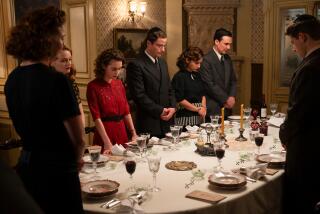A Day of Bullets and Chocolate
With a son fighting in Iraq as an officer in the Marine Corps and with reports about civilian casualties, my mind wanders back to the end of World War II, when I was just a boy who almost became a civilian casualty at the hands of American GIs myself.
My four siblings -- ranging in age from 8 years old to 9 months -- my grandmother and mother were refugees from the western front, living in a small, one-room country school near Bonn. Like most fathers those days, ours was at the front somewhere. We slept on the floor of that classroom, in a corner whose felicitous location saved our lives.
The Amis, as we called them in the German shorthand for Amerikaners, came to our village at dawn one sunny day in March 1945, guns blazing. I was awakened by the noise of bullets crashing into the walls of our schoolroom, plaster dust falling into my eyes. Frozen with fright, I peeked from under the blanket and saw muzzle flashes under the door to our room.
Luckily for us, the soldiers could shoot only into the corner next to ours. Not one of us uttered a peep.
Eventually, the English-speaking schoolmaster in the basement found the courage to stick out a white flag and tell the GIs that only women and children were upstairs. Immediately, the shooting stopped and the door to our room was kicked in. There they stood: two soldiers, rifles in hand, calmly surveying our room and seemingly eating something that, I learned later that day, was chewing gum. We were ordered to walk to a nearby barn. Programmed by years of propaganda, my mother whispered that we should stick together as we would probably all be shot.
Nothing of the sort happened, of course. We merely were told by a German-speaking GI to surrender all weapons, go home and stay indoors until further notice. When no such notice had come after a whole hour, my older brother Volker unilaterally declared the curfew lifted and he, my older sister, Heide, and I ventured outside.
Soon a giant tank began following us down the road. Try as we might, we could not outrun that tank. When it stopped and the turret popped open we expected, once again, to be shot. Instead, after peering down at us for a moment, the tanker disappeared. He reappeared shortly thereafter, equipped not with a gun but with a C-ration package, which he emptied onto the ground. We looked at him in stunned incomprehension. He reached down, rubbed our heads and then drove off.
Among the package’s wondrous contents were biscuits, dried lemonade, chocolate, chewing gum and three Lucky Strike cigarettes. We ate the chocolates and the biscuits and we tried in vain to swallow the gum. Finally, to top off the feast, my brother lighted a Lucky Strike, graciously handing one to my sister and me as well. “Best cigarette I’ve had in some time,” he opined, wise beyond his 8 years. I merely choked on mine and promptly got sick.
What were we to make of these GIs who treated us so gently after nearly killing us just before? Why did they shoot first and ask questions later?
It turns out that, as they approached our village at dawn, some fanatic German major (or his superiors) had ordered a platoon of retreating troops to open fire on the advancing Americans. Can anyone blame them for returning fire?
Neither my mother nor my grandmother blamed those GIs for even one moment. They understood that the Americans had every right to protect their own lives. Instead, my mother’s and grandmother’s ire was reserved for the irresponsible Germans whose contorted sense of duty made them forget that there can be no honor in prolonging a lost battle.
At home today, we have the luxury of debating the merits of this war in Iraq and the horror of civilian casualties with the detachment of students at a Princeton seminar. Not so the young men and women at the front. Under great duress, often after days without sleep, they must make awesome moral trade-offs in split seconds. My heart, my understanding and my admiration go out to them.
More to Read
Sign up for Essential California
The most important California stories and recommendations in your inbox every morning.
You may occasionally receive promotional content from the Los Angeles Times.










